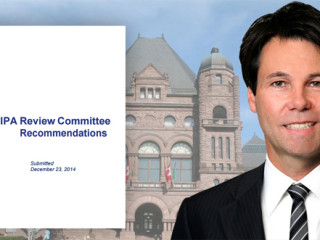Revision of the Traditional Deductions in Calculating Quantum of Damages
Released May 23, 2017 | Full Decision [CanLII]
The Plaintiff/Respondent, Esther Brake, was a long-serving McDonald’s manager for over 25 years. The Franchisee owner, Perry McKenna, told Ms. Esther on August 2, 2012, to accept a demotion to a ‘First Assistant’ or she would be terminated. Ms. Brake refused to accept the demotion on the basis that she would be humiliated and was terminated. At that time she was 62 years of age.
The Trial Judge found that Ms. Brake was entitled to 20 months’ worth of notice, inclusive of severance. By Judgment dated March 14, 2016, Ms. Brake was awarded $104,499.33 plus pre-judgment interest and costs. If you think you’ve been wrongly dismissed like Ms. Blake then you should check out https://www.wrongfulterminationsettlements.com/state-cases-amounts for more information about wrongful dismissal.
In their submissions, the Defendant/Appellant submits that Ms. Brake was not wrongfully terminated in that her refusal to accept the position as a ‘First Assistant’ amounted to a complete failure to mitigate, thereby disentitling her damages. Moreover that the Trial Judge erred in failing to properly account for income that Ms. Brake earned during the notice period.
It is important to note that in November of 2011, Mr. McKenna transferred Ms. Brake on the basis that her performance dropped from ‘excellent to satisfactory’ based on internal testing measures. The transfer location was a McDonald’s in a Wal-Mart that was ‘trending badly’ according to corporate documentation. This was the first, in an excellent employment history that Ms. Brake had a negative performance review.
During a short period between November 2011 and April 2012, and despite working 12-hour shifts, 7 days a week, Ms. Brake was summoned to a meeting where she was placed on a progressive discipline program. In August of 2012 Ms. Brake was unable to meet the goals of the plan and was told to accept the demotion or be terminated.
The issues raised by their appeal are as follows; the Trial Judge erred:
- by failing to give adequate reasons for his findings of fact and credibility determinations;
- in finding that Ms. Brake had been constructively dismissed;
- by failing to find that Ms. Brake’s decision not to accept the offer of continued employment as a First Assistant amounted to a failure to mitigate her damages, thus disentitling her to any damages; and
- in his treatment of mitigation during the notice period.
The Court of Appeal addressed each issue as follows:
Adequacy of Reasons
The Defendant/Appellant raised two complaints on this ground of appeal. First that the Trial Judge did not show the pathway taken through the conflicting evidence. Second that the Plaintiff/Respondent’s own evidence does not support the findings of fact. Gillese J.A., indicated that there was no merit to this ground of appeal.
First that appellate intervention is justifiable when the inadequacy of reasons is justifiable when the inadequacy prejudices the appellant’s exercise of his or her legal rights to an appeal or impedes or prevents an appellate court from understanding the basis of the trial decision. Gillese J.A. at [53] indicated:
The trial judge articulated the relevant legal principles. He reviewed the evidence, made his findings, and indicated how he applied the legal principles in light of those findings. The route by which he found that Ms. Brake’s employment had been wrongfully terminated is abundantly clear.
The second complaint according to Gillese J.A., was simply a quarrel with the Judge’s findings of fact, lacking any inference of an overriding and palpable error.
Constructive Dismissal Finding
The test for ‘constructive dismissal’ set out in Potter v. New Brunswick Legal Aid Services Commission [2015] 1 S.C.R. 500, while not cited by the Trial Judge, would not change in result. Objectively, there could be no doubt that a breach occurred, McDonald’s unilaterally changed the contractual terms. Moreover, a reasonable person in Ms. Brake’s shoes would have felt that the essential terms of the employment contract were being substantially changed.
Gillese J.A. at [67] stated:
In the present case, the first branch of the Potter test is the applicable one. Its application leads to the conclusion that when the Appellant told Ms. Brake she could take the First Assistant position or her employment would be terminated, it constructively dismissed her.
Refusal to Accept Continued Employment
The Defendant/Appellant submits that if Ms. Brake was constructively dismissed, she was obliged to accept the demotion to First Assistant and by failing to do so, she breached her obligation to mitigate her damages and disentitled herself from receiving compensation.
In short, Gillese J.A. did not agree. In Evans v. Teamsters, Local 31, [2008] 1 S.C.R. 661 the law dealing with this issue was summarized as:
Where an employer offers an employee a chance to mitigate damages by accepting a different position, the central issue is whether a reasonable person in the employee’s position would have accepted the offer. This is an objective standard, on which the employer bears the burden of proof. The employee is not obliged to mitigate by working in an atmosphere of hostility, embarrassment or humiliation. The non-tangible elements of the situation, including work atmosphere, stigma and loss of dignity, as well as the tangible elements, such as the nature and conditions of employment, must be considered in determining whether the objective standard has been met.
Gillese J.A. reiterated the Trial Judges finding that it would be unreasonable for Ms. Brake to accept the demotion. Testimony at trial revealed an environment that had become ‘downright insulting to Ms. Brake and her personality and abilities’. The trial Judge found it perfectly understandable that Ms. Brake in working under a much younger employee whom she had trained to be embarrassing and humiliating. Absent an overriding and palpable error, appellate intervention is not reasonable.
Notice Period
The Appellant/Defendant submits that the trial judge erred in awarding Ms. Brake damages based on a notice period of 20 months. They argue while they accepted her pre-1999 employment, it was for the purpose of collateral benefits only and ought not to be included for the purpose of calculating the statutory notice period.
Gillese J.A. turned to the ‘Credit Letter’ that Mr. McKenna sent to Ms. Brake when she first commenced working at his franchise. A plain reading of the language contained therein did not include a caveat, as Mr. McKenna suggests, that ‘50% of her service will be credited towards full time benefits’. Rather, the letter’s stated purpose is ‘to confirm Esther Brake’s length of service credit’. The Credit Letter is plain and clear in its last line that ‘this means that she [Esther Brake] will be credited with 7 years of full-time service as of 1999’.
Gillese J.A. at [79] that there was ‘nothing in this argument’. Citing Minott v. O’Shanter Development Co. (1999) 42 O.R. (3d) 321 (C.A.) at pp. 343-344 A trial Judge’s determination of the period of reasonable notice is entitled to considerable deference. Gillese J.A. concluded that the trial judge took a reasonable account of the factors set out in Bardal v. Globe and Mail Ltd. (1960) 24 D.L.R. (2d) 140 (Ont. H.C.) In reaching their decision.
Mitigation during Notice Period
The Appellant/Defendant submits that the Trial Judge erred when he found that Ms. Brake had made reasonable efforts to mitigate her losses and erred in law in failing to deduct the other income, received during the notice period, from the damages award.
Gillese J.A. indicated that there is no magic formula that an employee must follow when making reasonable efforts to obtain other employment and thereby mitigate his or her loss. Citing the Supreme Court in Michaels v. Red Deer College [1976] 2 S.C.R. 324 at p. 331 Gillese J.A. adopted the following passage in relation to the duty to mitigate.
When an employer alleges that a former employee has not reasonably mitigated his or her losses, “the question is whether [the employee] has stood idly or unreasonably by, or has tried without success to obtain other employment”
Reasonable Efforts to Mitigate
Gillese J.A. dispenses with this submission at [93]:
It is trite law that a trial judge’s factual findings are to be afforded deference and an appellate court is not to disturb them absent palpable and overriding error. The Appellant does not argue that the trial judge’s finding is infected by a palpable and overriding error. In effect, the Appellant is asking this court to retry the question of reasonable efforts. That request ignores the standard of review to be applied to findings of fact.
No Deductions from Income within Notice Period
The starting point commences with Sylvester v. British Columbia [1997] 2 S.C.R. 315 in that dismissed employees are entitled to damages for breach of contract based on employment income the employee would have earned during the notice period. However, Gillese J.A. places a distinction between income during the notice period and ‘amounts received in mitigation of loss.’ However, the court cannot refuse to consider whether income received from an ‘inferior job’ qualifies as mitigation income.
This issue of income deduction was broken down into the following sub-categories.
Employment Insurance
EI benefits are not to be deducted from damages awarded for wrongful dismissal.
Gillese cites Jack Cewe Ltd. v. Jorgenson [1980] 1 S.C.R. 812 at p. 818 at [103]:
The payment of [EI] contributions by the employer was an obligation incurred by reason of [Mr. Jorgenson’s] employment, therefore, to the extent that the payment of those contributions resulted in the provision of [EI] benefits, these are a consequence of the contract of employment and, consequently, cannot be deducted from damages for wrongful dismissal.
In Peck v. Levesque Plywood Ltd., (1979) 27 O.R. (2d) 108 this court allowed a cross appeal holding that the damages award should not be reduced by the amount of the E/I benefits. Dubin J., as he then was, indicate that it would be inconsistent to have that amount taken into account for the benefit of the employer who, by its breach of contract, compelled the employee to resort to his [E/I] benefits.
Employment Income in the Statutory Entitlement Period not subject to Mitigation
There are two different types of damages entitlement for wrongful termination. Termination and severance pay under the ESA and common law damages for wrongful dismissal. Ms. Brake claimed both by her statement of claim.
The Trial Judge was able to make a global award encompassing both so as to avoid double recovery pursuant Stevens v. Globe and Mail (1996) 28 O.R. (#d) 481 (C.A.). The 20 months damages award included Ms. Brake’s statutory entitlements. Gillese J.A. goes on at [111] in that statutory entitlements are not damages. Ms. Brake was entitled to receive her statutory entitlements even if she secured a new full-time job the day after the Appellant/Defendant terminated her employment.
Adopting the view of the Divisional Court in Boland v. APV Canada Inc., (2005) 250 D.L.R. (4th) 376, Gillese J.A. indicated that income earned during the statutory entitlement period is not subject to deduction as ‘mitigation income’. Any employment income that Ms. Brake earned during her statutory entitlement period is not deductible as ‘mitigation income’.
Deductibility of Additional part-time Income
Citing the Supreme Court in Karas v. Rowlett [1944] S.C.R. 1 at p. 8, Gillese J.A. adopted, while considering the general premise that an employer is generally entitled to a deduction for income earned by the dismissed employee from other sources, the following passage:
Income earned by the plaintiff after a breach of contract to be deductible from damages, “the performance in mitigation and that provided or contemplated under the original contract must be mutually exclusive, and the mitigation, in that sense, is a substitute for the other.” Therefore, if an employee has committed herself to full-time employment with one employer, but her employment contract permits for simultaneous employment with another employer, and the first employer terminates her without notice, any income from the second employer that she could have earned while continuing with the first is not deductible from her damages.
On that basis, the supplementary income Ms. Brake earned did not rise to the level that it should be considered as a substitute that would have been earned under the original contract and treated as deductible mitigation income.
Burden of Proof
Knowing the duration of the statutory entitlement period is important in an effort to distinguish income earned during that period from income earned afterwards. In cases of blended income awards, the onus rests on the employer to prove what employment income is attributable to the statutory entitlement period and what is attributable to the balance of the notice period.
Citing Red Deer College, Supra, at p. 331 Gillese J.A. indicated at [125] that once an employee has proven wrongful dismissal and has adduced evidence of his or her losses, the onus shifts to the employer to demonstrate that some or all of those losses were avoidable or avoided.
The reference herein draws upon the ‘Avoidable Loss’ principle in McGregor on Damages at p. 311 and goes on to say at [126]:
Where it appears that steps have been taken by the claimant to avoid loss which are [sic] to be taken into account in assessing the damages, the onus is on the defendant to prove that, and also how far, loss has thereby been avoided. [Emphasis added.]
Gillese J.A. indicates at [127] that should the Appellant/Defendant sought to have the supplementary income treated as mitigation income, it is up to them to show what part of the income was properly attributable to the balance of the notice period, after the expiry of the statutory entitlement period.
For these reasons the Appeal was dismissed with costs fixed at $19,500.00.
Interestingly, in a concurring Judgment, Feldman J.A. indicated that supplemental income that is so substantially inferior to the position held, does not rise to the appropriate level of mitigation income for the balance of the notice period.
Read the full decision on CanLIICounsel
Defendant/Appellant: J.F. Lalonde
Plaintiff/Respondent: Miriam Vale Peters












